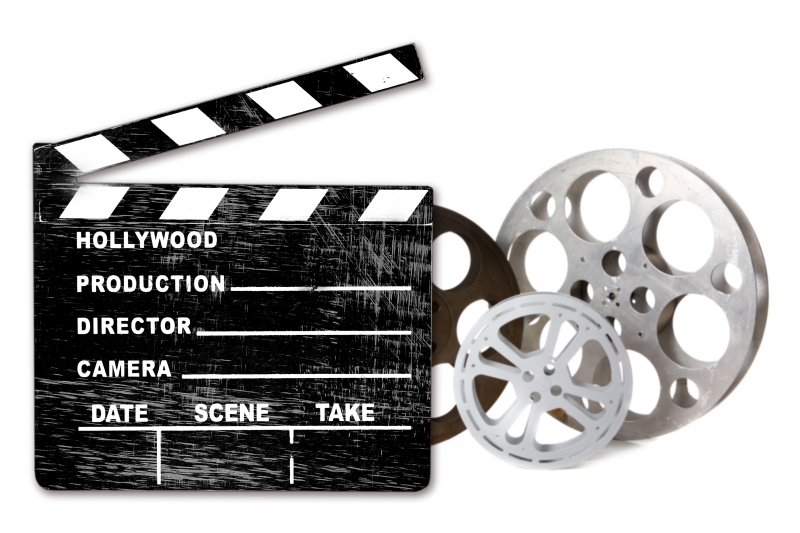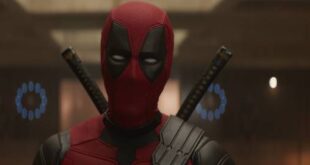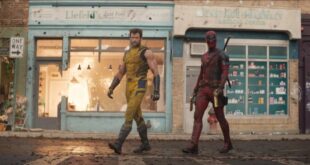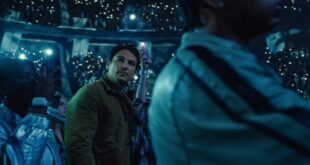Moneyball’s Billy Beane said it best when it came to surviving in a hard industry. “Adapt or die.” Powerful words and while Hollywood is not baseball, they’ve got more in common than most would think about. You see, both require stars to perform their craft admirably for an audience, sell merchandise, and get butts in seats. However, one thing that Hollywood does better than baseball, and pretty much every other profession is: adaptation.
For those of you who don’t know, adaptation refers to the process of making something suitable for a new use or purpose. Our bodies adapt to time changes, animals adapt to environmental shifts, and Hollywood adapts novels, comic books, plays, and video games to try and get more money. While not identical in the biological sense, Hollywood is just doing what we do all the time. They are changing to better fit the new situation they are presented with. And the new situation that Hollywood is often presented is: “How do we make more money?”
To give you a little history lesson, we need to hop in our Time Machine (also an adaptation) and go back to the late 1800s/early 1900s when George Méliès released two adaptations: Cinderella and King John. Now, these films are nearly impossible to come by, but this should demonstrate that Hollywood has been doing this kind of thing for awhile. It’s not new, it’s not going to stop, it’s just part of the business; because, Hollywood, as I’ve stated previously, is a storytelling machine.
So, why am I bringing this up now? Well, because J.J. Abrams just announced that he’s producing a live-action adaptation of the hit anime film: Your Name. If you haven’t seen the original film, it’s a beautiful/touching story following two teenagers and their body swapping adventure. It’s simple, pure hearted, and obviously needed a big budget Hollywood adaptation*. But, all in all, we shouldn’t get up in arms about it. This has been going on for years and just a few minutes ago, as I scrolled through my Facebook and Twitter feeds, I read about four other adaptations. From film to tv show, from comic to cinematic universe, from play to web series, these all are ripe for adapting. Why? One answer.
$$$$$$$$$
When it comes to adapting, most people ask the question: “why?” and the answer is really as simple as dollars and cents. With these properties and their burgeoning audiences, Hollywood needs to tap into that market and excavate it for what it’s worth. They call these people: a built in audience. For example: let’s say you just read Harry Potter and the Sorcerer’s Stone for the first time. You knew there was a follow-up series to this book and you can’t help but notice that the world has gone crazy for this boy and his scarred up forehead. Wouldn’t you want to try and capitalize on someone else’s success? You stand to make a fortune if you snatch up those movie rights because there is an audience hungry to see a live action version of the film. 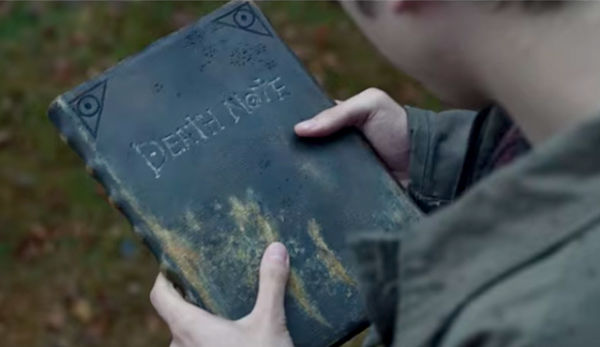
However, and this is something that needs to be stated for nearly everyone, an adaptation of the book/comic/video game/etc., will often never live up to the hype. You, the reader of that particular book, has a lofty expectation as to what the live action film/tv show is going to look like. It can’t live up to what you want and it might not even live up to the original in the slightest. Take for example: Death Note, the recent Netflix Original adaptation of the manga/anime series. People who lived and died (haha, get it?) by the series were rightfully concerned with the announcement of the cast/production of this film. It’s a story set in Japan, but let’s cast all these white actors instead. Now, white washing in Hollywood is a different article all together, but it is important to take that into consideration.
These characters were clearly Japanese, but they were ADAPTED into white people. It’s a change to the environment for a chance to expand and grow as a commodity. It makes 100% sense from a business standpoint and 0% from a storytelling one. A lot of complaints were that these characters do not accurately reflect the Japanese ideas and beliefs that make the original characters believable and enjoyable. Now, I can’t say I’ve seen the film, but what I have seen from it doesn’t seem to be that far off base of what Death Note is. And that’s because an adaptation doesn’t need to be perfect.
Adaptation is an actual art form and should be treated as such, because adaptation comes from interpretation and that’s where it gets murky. You can’t tell someone that their interpretation of whatever art form they’re enjoying is wrong. Because, it’s just how they interpret and read the text. You and I could read the exact same book, or go see the exact same movie, and have wildly different feelings and responses to it. However, there’s a variant and that’s known as fidelity.
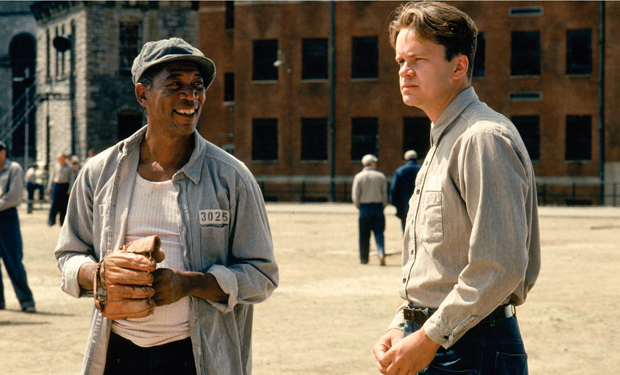 Fidelity refers to the faithfulness to the source material. Now, arguably some of the greatest adaptations of all time come from lengthy novels or incredible storyies (see The Godfather/The Shawshank Redemption or The Social Network). What makes the films so great is that they maintain a sense of fidelity to the original text, while changing things to better fit the tone/mood of the piece. At no point in the original novel is Red, from Shawshank, a black man. They never give him any other characteristic other than his red hair and that he’s Irish. That’s a huge jump to Morgan Freeman, but it was with purpose. It heightened the reliability of the characters and made the first meeting with him all the more charming. Fidelity doesn’t matter if the changes are in service of the story or film, it’s only when things are needlessly changed that it matters and turns the audience against the product (see: Batman and Robin’s Batnipples/Bat Credit Card).
Fidelity refers to the faithfulness to the source material. Now, arguably some of the greatest adaptations of all time come from lengthy novels or incredible storyies (see The Godfather/The Shawshank Redemption or The Social Network). What makes the films so great is that they maintain a sense of fidelity to the original text, while changing things to better fit the tone/mood of the piece. At no point in the original novel is Red, from Shawshank, a black man. They never give him any other characteristic other than his red hair and that he’s Irish. That’s a huge jump to Morgan Freeman, but it was with purpose. It heightened the reliability of the characters and made the first meeting with him all the more charming. Fidelity doesn’t matter if the changes are in service of the story or film, it’s only when things are needlessly changed that it matters and turns the audience against the product (see: Batman and Robin’s Batnipples/Bat Credit Card).
Now, I would like to take a minute to look over what some consider the worst adaptations of all time:
The Cat in the Hat 10% on Rotten Tomatoes
The Scarlet Letter 14% on Rotten Tomatoes
Super Mario Bros. 15% on Rotten Tomatoes
Street Fighter 15% on Rotten Tomatoes
Ghost Rider 26% on Rotten Tomatoes
This list is just from a cursory Google search, but I’m going to have to agree with nearly all of these. These are all bad films for one reason or another, but the properties themselves have rich history, a strong built-in audience, and stories that are compelling, at least for the most part. So, what happened? Why did these not work? Is it because they through fidelity out the window? Is it because the interpretation was all wrong? Or did no one really care about this in the first place and they just wanted the $$$?
Well, your guess is as good as mine, but you can often look to the script. You see, when adapting a novel/graphic novel/comic/video game, you tend to focus on one thing that you really want to bring to life in the film. Maybe it’s an awesome set piece or a really profound line of dialogue, but there’s always something that really grabs the reader and makes them say: “yeah, this is solid stuff, let’s make it into a movie.” However, along the way, something gets lost. Usually it’s the rich thematics of a piece or the depth of characters, but there’s no one clear cut answer. Something just gets lost in the translation.
Hollywood has and always will do adaptations. They would rather have the “safer bet” when it comes to storytelling, rather than risk it all. Now, this doesn’t excuse them every time an adaptation comes out. They have a responsibility to the audience to deliver at least something that can be comparatively enjoyable to the original. If not, they’ve failed themselves, they’ve failed the source material and most importantly they’ve failed you as an audience.
So, you’ve got one of two options. Adapt or die. It’s your choice.
*sarcasm
 Age of The Nerd
Age of The Nerd
